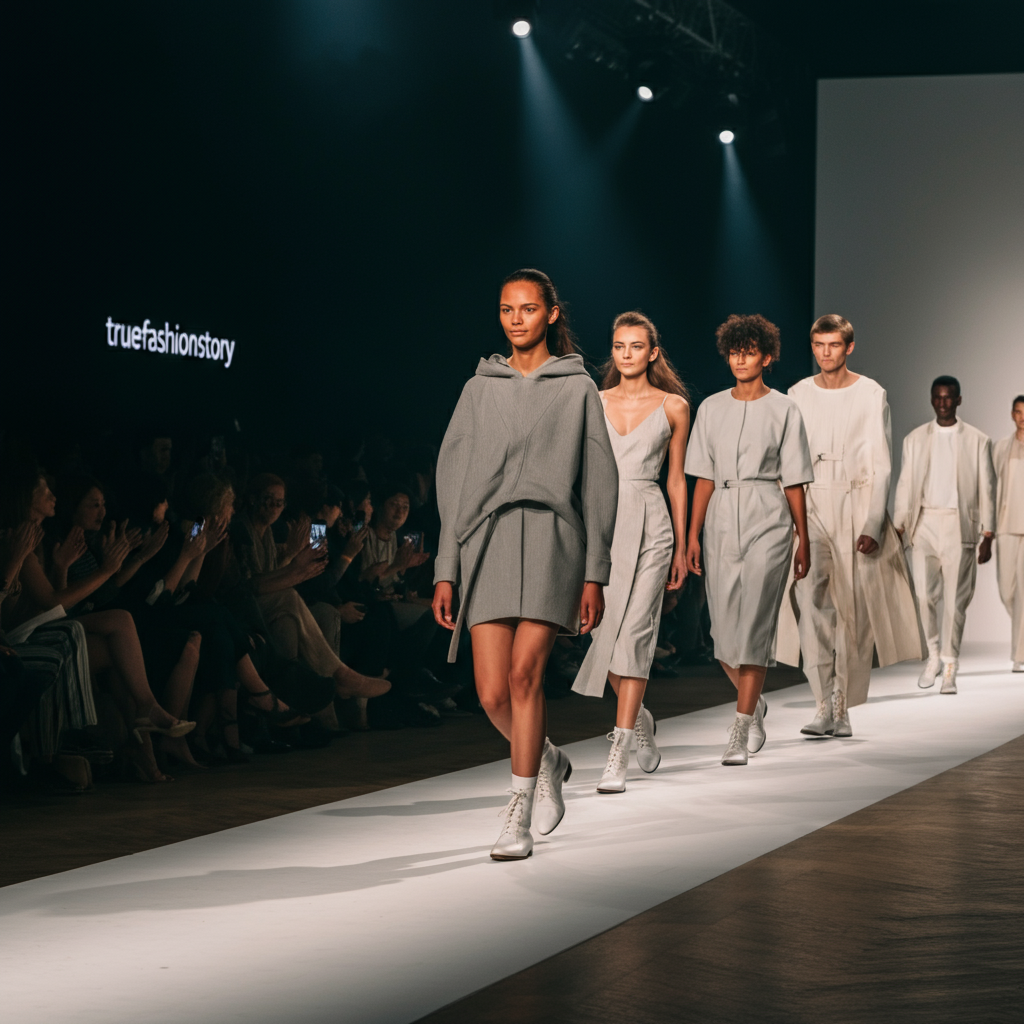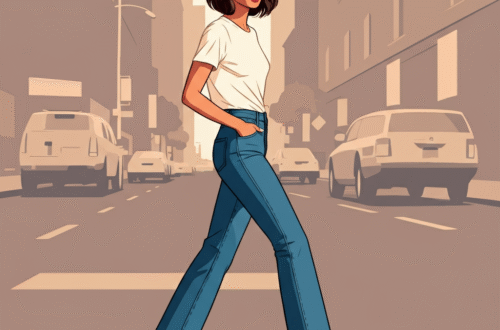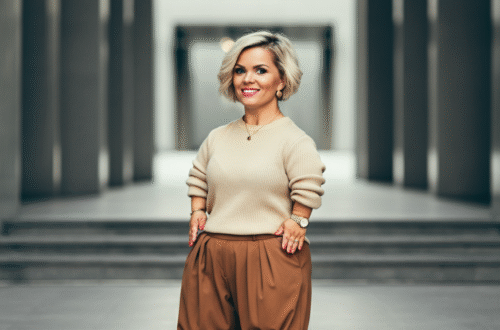Fashion Week is a term that brings to mind dazzling runways, celebrity-filled front rows, and the latest creations from legendary design houses. But what about the designers who are just starting out? How do they get their foot in the door of this glamorous, yet competitive, industry? This is where an event like Fashion Week DTI comes into play. It’s a platform designed to discover, support, and showcase the next generation of fashion talent.
This guide will walk you through everything you need to know about Fashion Week DTI. We’ll explore its mission, how it differs from major fashion weeks, and the incredible opportunities it offers emerging designers. Whether you’re a student, a new brand owner, or simply a fashion enthusiast, you’ll gain a deeper appreciation for the forces shaping the future of style.
Key Takeaways
- Platform for New Talent: Fashion Week DTI is specifically created to give new and emerging designers a professional platform to showcase their work.
- More Than a Runway Show: It offers vital resources, including mentorship, business workshops, and networking opportunities that are crucial for career growth.
- Accessibility is Key: Compared to major fashion weeks, it provides a more accessible and affordable entry point for designers without established names or large budgets.
- Focus on Innovation: The event champions creativity, sustainable practices, and fresh perspectives, pushing the boundaries of traditional fashion.
- Career Launchpad: Participating in Fashion Week DTI can lead to significant media exposure, retail partnerships, and a dedicated customer base.
What Exactly is Fashion Week DTI?
Fashion Week DTI stands for Fashion Week for Emerging Designers and Talent Incubation. Unlike the “Big Four” (New York, London, Milan, and Paris) that primarily feature established luxury brands, this event is dedicated to new voices. Its core mission is to bridge the gap between design school and commercial success. It provides a structured, supportive environment where up-and-coming creators can present their collections to a relevant audience of buyers, press, and industry insiders.
Think of it as a fashion incubator wrapped in a runway event. The organization behind Fashion Week DTI understands that talent alone isn’t enough to build a sustainable brand. Designers also need business acumen, industry connections, and practical resources. The event is carefully curated to provide these essential tools, helping participants navigate the complex world of fashion. It’s a celebration of raw creativity and a launchpad for the future icons of the industry.
The Mission: Nurturing the Next Generation of Fashion
The primary goal of Fashion Week DTI is to cultivate new talent. The fashion industry can be incredibly difficult to break into, often requiring significant financial backing and influential connections. This event aims to level the playing field by creating a merit-based platform where creativity and skill are the main currencies. The organizers focus on discovering designers with unique points of view and providing them with the exposure they need to thrive.
This mission extends beyond a single runway show. It involves a year-round commitment to mentorship and development. By connecting new designers with seasoned professionals, Fashion Week DTI helps them refine their business strategies, improve their production processes, and build a strong brand identity. This holistic approach ensures that participants are not just prepared for a single show but are equipped for a long-term career in fashion. You can find more stories about designers’ journeys on platforms like truefashionstory.comBlog.
Core Objectives of the Program
- Discovery: To actively seek out and identify promising designers from diverse backgrounds.
- Showcase: To provide a high-quality, professional runway platform for designers to present their collections.
- Education: To offer workshops and seminars on topics like branding, marketing, finance, and sustainable production.
- Networking: To facilitate meaningful connections between designers, buyers, media, stylists, and manufacturers.
- Mentorship: To pair emerging talent with established industry experts for guidance and support.
How Fashion Week DTI Differs from Major Fashion Weeks
While both share the “Fashion Week” name, their purpose, scale, and audience are quite different. Understanding these distinctions highlights the unique value that Fashion Week DTI offers. Major fashion weeks are massive, industry-driving events focused on legacy brands and celebrity designers, whereas this event is intimate and development-focused.
The barrier to entry is one of the most significant differences. Securing a spot on the official calendar for New York or Paris Fashion Week can cost tens of thousands, if not hundreds of thousands, of dollars. In contrast, Fashion Week DTI offers a much more accessible price point, making it a realistic goal for designers who are just starting out and may not have access to large amounts of capital. The focus is less on commercial spectacle and more on authentic talent discovery.
Key Differences at a Glance
|
Feature |
Major Fashion Weeks (NY, Paris, etc.) |
Fashion Week DTI |
|---|---|---|
|
Primary Focus |
Established luxury brands, commercial trends |
Emerging designers, innovation |
|
Cost to Participate |
Extremely high (often $50k+) |
Accessible and relatively affordable |
|
Core Purpose |
Driving seasonal sales, media spectacle |
Talent incubation and career development |
|
Atmosphere |
Exclusive, high-pressure, celebrity-driven |
Collaborative, supportive, discovery-focused |
|
Designer Support |
Minimal; designers are expected to be self-sufficient |
Extensive mentorship and business resources |
The Application and Selection Process
Getting a spot at Fashion Week DTI is a competitive process, but it’s designed to be transparent and meritocratic. The organization looks for more than just beautiful sketches; they want to see a cohesive vision, technical skill, and a clear brand identity.
Step 1: The Initial Application
The journey begins with an online application. Aspiring participants are typically required to submit:
- A portfolio of their work, including sketches, photos of finished garments, and mood boards.
- A brand statement or biography explaining their design philosophy and vision.
- A business plan or outline of their brand’s goals.
- Details about their collection, including theme, materials, and target customer.
Step 2: The Review Committee
A panel of industry experts carefully reviews each application. This committee is usually composed of fashion editors, retail buyers, established designers, and educators. They assess the submissions based on several criteria:
- Creativity and Originality: Does the designer have a unique and compelling point of view?
- Technical Skill: Is the construction and finishing of the garments up to a professional standard?
- Market Viability: Does the collection have commercial potential? Is there a clear target audience?
- Cohesion: Does the collection tell a clear and consistent story?
Step 3: Interviews and Final Selection
Shortlisted candidates may be invited for an interview, either in person or virtually. This is an opportunity for the designer to present their vision directly to the committee and answer any questions. The final selection is based on a holistic review of the application, portfolio, and interview. Those who are chosen are officially invited to participate in the upcoming Fashion Week DTI event.
What Designers Gain from Participating
The benefits of being part of Fashion Week DTI extend far beyond a 15-minute runway show. It’s an investment in a designer’s future, providing tangible and intangible returns that can shape the trajectory of their career.
Professional Runway Showcase
The most visible benefit is a professionally produced runway show. This includes a proper venue, lighting, sound, models, and backstage crew. For many new designers, this is their first opportunity to see their collection come to life in a professional context.
Media Exposure and PR
The event is attended by fashion journalists, bloggers, and influencers who are looking for the next big thing. A positive review or a feature in a prominent publication can dramatically increase a brand’s visibility and credibility. Participants receive press coverage that would be difficult and expensive to secure on their own.
Networking with Industry Insiders
One of the most valuable aspects of Fashion Week DTI is the access it provides. Designers get to connect directly with retail buyers, boutique owners, stylists, and editors. A single conversation can lead to a wholesale order, a magazine feature, or a collaboration. These relationships are the building blocks of a successful fashion business.
Business Development and Mentorship
Unlike other platforms, the support doesn’t end when the runway lights go down. The program includes workshops on critical business topics.
- Branding and Marketing: How to tell your story and reach your target customer.
- Pricing and Finance: How to price your garments for profit and manage your finances.
- Sourcing and Production: How to find reliable manufacturers and sustainable materials.
Success Stories from Fashion Week DTI Alumni
The true measure of the event’s success is the careers it has helped launch. Many alumni have gone on to build thriving brands, get stocked in major retailers, and gain international recognition. One notable alum, who started with a small, sustainably focused collection, is now featured in boutiques across the United States and Europe. Her participation in Fashion Week DTI gave her the initial press and buyer connections she needed to scale her business.
Another success story is a designer known for his avant-garde menswear. Before the event, his designs were considered too niche for the commercial market. The platform gave him the freedom to showcase his unfiltered creativity, which caught the eye of a prominent stylist. This led to his pieces being worn by musicians and actors, launching his brand into the cultural spotlight. These stories demonstrate that the platform is a powerful catalyst for growth.
The Role of Sustainability and Innovation
Fashion Week DTI is not just about aesthetics; it’s also about ethics and innovation. The event actively encourages designers to adopt sustainable practices and explore new technologies. There is a growing emphasis on showcasing brands that prioritize:
- Eco-friendly Materials: Using organic cotton, recycled textiles, or innovative bio-fabrics.
- Ethical Production: Ensuring fair wages and safe working conditions in their supply chain.
- Zero-Waste Design: Employing techniques like pattern-cutting that minimize fabric waste.
- Digital Fashion: Exploring the possibilities of 3D design and virtual runway shows.
By championing these values, Fashion Week DTI is helping to shape a more responsible and forward-thinking fashion industry. It sends a powerful message that success and sustainability can, and should, go hand in hand.
How to Attend or Get Involved
You don’t have to be a designer to be part of the Fashion Week DTI experience. The event is a fantastic opportunity for fashion students, enthusiasts, volunteers, and potential sponsors.
- For Students and Enthusiasts: Tickets are often available to the public for select shows. It’s a great way to see emerging trends and support new talent. Check the official website for schedules and ticket information.
- For Volunteers: The event relies on a team of dedicated volunteers to help with everything from backstage dressing to front-of-house management. Volunteering is an excellent way to gain firsthand experience in event production.
- For Sponsors: Brands and companies can get involved by sponsoring the event. This offers a unique opportunity to align your brand with creativity, innovation, and the future of fashion.
The Future of Talent Incubation in Fashion
Platforms like Fashion Week DTI are more important than ever. The fashion landscape is constantly changing, with social media and e-commerce lowering the barrier to entry for starting a brand. However, visibility and business knowledge remain significant hurdles.
The future of talent incubation will likely involve a hybrid model, combining physical runway shows with robust digital platforms. This approach allows designers to reach a global audience while still benefiting from the tangible connections made at in-person events. As the industry continues to evolve, the mission of Fashion Week DTI—to discover, nurture, and promote new talent—will remain a vital part of the fashion ecosystem.
Frequently Asked Questions (FAQ)
Q1: Who is eligible to apply for Fashion Week DTI?
A1: Generally, the event is open to designers who are in the early stages of their careers. This includes recent graduates, designers with brands that are less than three years old, and those who have not yet had a major solo runway show. Specific eligibility requirements can be found on their official website.
Q2: Is Fashion Week DTI only for apparel designers?
A2: While apparel is the primary focus, many showcases also feature accessory designers, including jewelry, handbags, and footwear. The goal is to present a complete look and support all facets of the fashion industry.
Q3: How much does it cost to participate as a designer?
A3: The costs are significantly lower than major fashion weeks but can still be a considerable investment for a new brand. Fees vary depending on the package, but they generally cover production costs for the show. Some programs may offer scholarships or tiered pricing.
Q4: Can international designers apply?
A4: Yes, Fashion Week DTI often attracts a global pool of talent. They typically welcome applications from designers around the world, although visa and travel logistics are the responsibility of the participant.
Q5: How can I follow the event if I can’t attend in person?
A5: Most shows and behind-the-scenes content are streamed live on social media platforms like Instagram and YouTube. You can also follow along through the official hashtags and by checking the websites of participating fashion media outlets.





